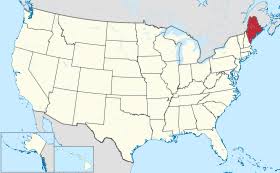The committee charged with launching the state’s commercial adult-use market already has reintroduced the bill that Gov. Paul LePage vetoed last month, changing just a few of the dates to reflect the delay caused by the veto. The committee will hold the first hearing on the bill on Jan. 5 and use that testimony to help decide what other parts of the old bill need to be changed, said Rep. Teresa Pierce, D-Falmouth, the committee’s House chair.
Legislative committee dives into another go at recreational marijuana bill
The committee didn’t want to start over from scratch, but members realize they must seek a compromise that LePage, who vetoed their last bill, and House Republicans, who sustained LePage’s veto, can tolerate, Pierce said. She and her co-chair, Sen. Roger Katz, R-Augusta, are scheduling a meeting now with the top House Republican, Rep. Ken Fredette of Newport, and even have reason to believe LePage is willing to talk with them.
“We wanted to get right back to work,” Pierce said. “Every day we delay is one more day the black market is thriving, one more day we’re not protecting our kids and one more day we are not giving our communities the direction they want. We must find compromise. It’s important that we are all at the table when we’re doing this work. It is the only way it can work.”
CRITICISM STINGS COMMITTEE
The previous version of the recreational cannabis bill was approved by the House and Senate in October, but it fell 17 votes shy of the two-thirds majority needed to override LePage’s veto last month. A vote tally showed the bill had actually lost support over the two weeks between the first vote and the override vote. Although some people from both parties crossed lines, House Republicans essentially upheld LePage’s veto.
In his veto letter, LePage rejected the committee’s first bill as risky, inconsistent and rushed. When asked what parts of the bill the governor believes need more attention, a LePage spokeswoman contacted Tuesday referred a reporter to the veto letter.
In it, LePage said the committee’s bill puts Maine in conflict with federal law, fails to address shortcomings in the medical marijuana program, creates a confusing regulatory system, sets an unrealistic time line for launching the new market and might not generate enough tax revenue to cover the cost of implementation or regulation.
After lawmakers sustained LePage’s veto, Fredette warned that to get the support of LePage and House Republicans, any new adult-use bill would have to get tougher on people who drive high, crack down on loopholes in the medical marijuana program, and kill a tax-sharing provision for towns that host recreational growing operations or retail stores. He said bill supporters would have known this if they had bothered to consult with LePage or Fredette during the bill-writing process.
His criticism stung Pierce and Katz, who say they had repeatedly invited LePage and his administration to testify during the bill drafting process with little success. Some of Fredette’s demands, such as a scientific test to identify marijuana impairment, has yet to be developed anywhere. Some tests measure different types of chemical compounds found in marijuana but don’t necessarily indicate how long ago a driver used pot, or if the driver is impaired, she said.
All but one of the House Republicans on the committee that drafted the bill rallied behind it, Pierce noted.


















